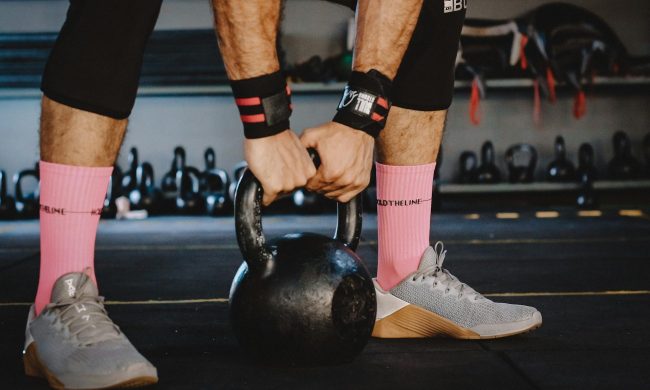As a nutritionist, I have worked with many clients who were unaware of nutrient deficiencies they had. This resulted in symptoms like trouble sleeping and lack of energy. Two minerals that I have found make a positive impact on people but are often under-consumed are zinc and magnesium.
Zinc can help your immune system and mental functioning, while magnesium can improve your muscle function, reduce inflammation, and strengthen your bones. But can you take zinc and magnesium together?
In this article, we’ll discuss the benefits of zinc and magnesium, as well as their potential interactions. We’ll also look at how much of each element you need, what foods contain them, and, of course, whether you can take supplements for both together. So let’s get started!
What are the benefits of taking zinc?

Stronger immune system
Zinc is required for the healthy functioning of your immune system, so supplementing with zinc can help produce more white blood cells to fight infections and even reduce the length of colds. That makes zinc a great supplement to add in the winter when cold and flu season starts, even if you don’t take it normally.
Cognitive boost
Zinc is a key neurotransmitter, meaning a compound that carries messages through the brain and nervous system. It can reduce the risk of neurological conditions from strokes to depression.
Protein synthesis
Zinc helps the body create and use proteins, which are the building blocks of absolutely everything, from muscles to skin to cellular machinery. It’s been estimated that 10% of proteins in the human body require zinc in order to function.
What are the benefits of taking magnesium?

Improved muscle function
Magnesium is an electrolyte that helps muscles to contract. Lack of magnesium can cause muscle cramps or weakness. This is also why soaking in Epsom salts is soothing after a workout; the magnesium in them absorbs through the skin and replaces what was used up earlier.
Lessened inflammation
Magnesium reduces inflammation, and magnesium deficiencies have been linked to higher inflammation. Higher inflammation, in turn, is linked to inflammatory diseases like arthritis, Crohn’s disease, and even obesity. Getting enough magnesium means reducing your risk for inflammatory and autoimmune diseases, which is something we can all get behind.
Supported bone health
According to a summary of magnesium science, “Magnesium deficiency contributes to osteoporosis directly by acting on bone cells and indirectly by impacting on the parathyroid hormone and by promoting low-grade inflammation.” Calcium is more famous for promoting bone health, but magnesium is necessary too. Magnesium supplements can help you keep your bones strong and reduce your risk of osteoporosis as you age.
Can you take zinc and magnesium together?

There is no problem with taking magnesium and zinc at the same time. Many electrolyte supplements contain both. Magnesium is one of the key electrolytes, and you need much more of it, but zinc is an important contributor, too. They might seem like similar supplements since they’re both metallic elements, but they don’t cause any problems with each other.
Who should avoid zinc and magnesium supplements?

Anyone taking a medication that interacts with zinc or magnesium, like some antibiotics and blood pressure medicines, should ask their doctor before taking zinc or magnesium supplements. It’s possible to be allergic to zinc, and people with a zinc allergy should definitely avoid supplementing with it.
People with kidney diseases should not take magnesium because it might not be filtered out over time, and it could build up to dangerously high levels. Magnesium can also cause digestive issues in some people.
Foods high in zinc and magnesium

Oysters are famously rich in zinc. Other protein sources, such as meat and poultry, tofu, and dairy, also contain good amounts of zinc. Most vegetables don’t have much zinc, but mushrooms, nuts, and seeds do. The best seeds for zinc content are lentils, oats, and wheat germ.
Magnesium is found in dark leafy greens, like spinach and kale, as well as avocados and dark chocolate. You can also find it in nuts and seeds, like pumpkin, chia, and sunflower seeds, brown rice, and almonds. And some fish, like salmon and tuna, contain high amounts of magnesium as well.
Frequently asked questions

How much zinc do men need daily?
Men are recommended to get 11 milligrams of zinc per day. That’s contained in two oysters, a 5-ounce steak, or three cups of tofu. Without meat or tofu, you’d need five ounces of most types of seeds or five cups of mushrooms.
How much magnesium do men need daily?
Men should get between 400 and 420 milligrams of magnesium each day. That recommended value is found in two cups of spinach, two and a half ounces of most seeds, ten bananas, seven ounces of dark chocolate, or eight cups of cooked oats.
What potential drug interactions could magnesium and zinc have?
Both zinc and magnesium interact with some antibiotics. Zinc also interacts with amiloride and atazanavir, and magnesium can interact with drugs for osteoporosis and high blood pressure. You may still be able to take these medicines with zinc or magnesium, but you should talk to a doctor for more specialized advice.




